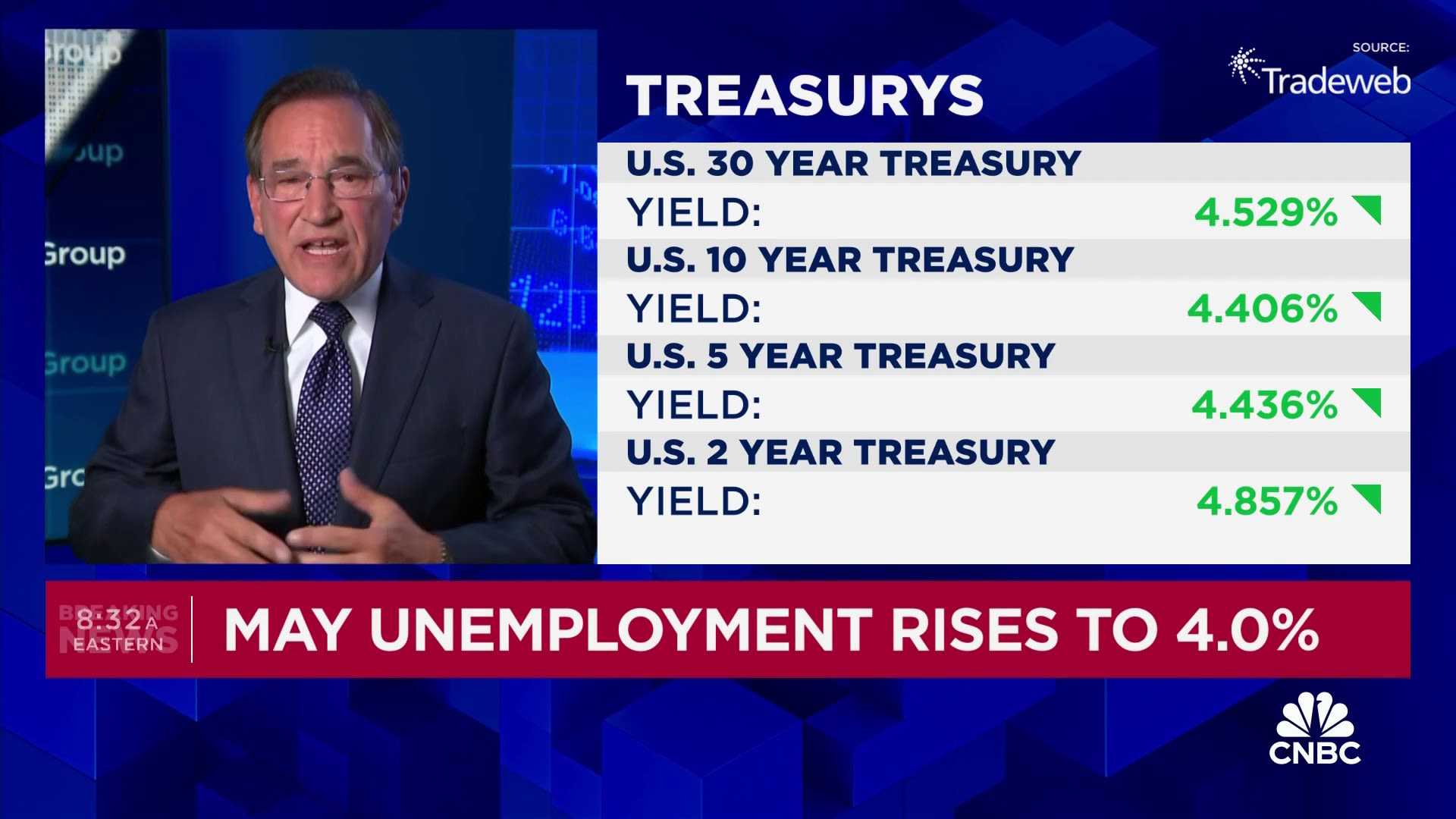Business
Treasury Yields Drop Amid Concerns Over Job Growth and Tariffs

New York, NY – U.S. Treasury yields plummeted on Friday following a disappointing July job report and President Donald Trump’s announcement of new tariffs, raising concerns about economic growth.
The yield on the 10-year Treasury note fell over 17 basis points to 3.776%, as traders reconsidered the potential for a Federal Reserve interest rate cut in September. The yield on the 30-year Treasury also dropped more than 9 basis points to 4.267%, while the yield on the 5-year note eased 5.4 basis points to 4.833%.
“Bond prices exploded higher on the all-important jobs report, as the door to a Fed rate cut in September just got opened a crack wider,” said Chris Rupkey, chief economist at FWDBONDS. “The labor market looks in much worse shape than we thought. Bet on it.”
The Bureau of Labor Statistics reported that nonfarm payrolls increased by only 73,000 in July, significantly lower than the anticipated 100,000. The unemployment rate also ticked up to 4.2%. Additionally, hiring figures for June and May were revised downward, with June’s total slashed from 147,000 to 14,000 and May’s down to 19,000 from 144,000.
Investors are keeping a close eye on trade developments following Trump’s new tariffs, which range from 10% to 41% and will go into effect on August 7. In a statement, Trump indicated that while he is open to negotiations, it is “too late” for countries to avoid these new tariffs.
On the financial markets, stock futures sharply dropped as investors reacted to the labor market data and the tariff news. Dow Jones Industrial Average futures were down 0.8%, S&P 500 futures 0.9%, and Nasdaq futures 1.1%. Despite this recent decline, the S&P 500 had reached a series of record highs in previous weeks.
The impact of these developments has created uncertainty surrounding the economy, with the Fed needing to weigh the potential effects of tariffs on inflation before making any decisions on interest rates. Fed Chair Jerome Powell mentioned that September’s decisions will depend on upcoming inflation and labor market data.
As the labor market appears to weaken, some market analysts predict it could influence the Fed to make more aggressive monetary policy changes in the near future. “The central bank is likely to be pressured, especially with the labor market showing significant weaknesses,” Rupkey added.
The yield on the 10-year Treasury note has been a key indicator for borrowing costs across various loans, including mortgages, impacting many American households.












